Scientists and researchers are predicting an imminent revolution that will completely transform our world. This revolution is centered around the future of Artificial Intelligence (AI), and it is expected to happen in just a few years, not decades. With the clock ticking, businesses are now encouraged to embrace AI and take advantage of its revolutionary potential. AI has already become an integral part of our lives, and its impact is only projected to grow. In fact, experts estimate that the global AI market will reach a staggering $267 billion by 2027. While there are concerns about potential risks and job displacement, AI has also created new opportunities and increased the number of jobs available across various industries. In this video, we will explore the future of AI and its applications in healthcare, cybersecurity, e-commerce, agriculture, robotics, education, finance, gaming, and more. We will delve into the different types of AI, such as Weak AI, General AI, and Super AI, and discuss their future implications. Buckle up, as this exciting journey into the future of AI is about to begin. Get ready to envision a world where AI surpasses human intellectual capacity and becomes an indispensable part of our everyday lives. So, let’s dive in and explore the incredible potential of AI in various industries.
The Future of AI in Various Industries
Introduction
Artificial Intelligence (AI) has become an integral part of our lives and is expected to play a significant role in shaping the future. The global AI market is estimated to reach $267 billion by 2027, reflecting its growing importance and widespread adoption across various industries. In this comprehensive article, we will explore the future of AI in healthcare, cybersecurity, e-commerce, agriculture, robotics, education, the military system, finance, and gaming.
Types of Artificial Intelligence
AI can be categorized into three types: Weak AI, General AI, and Super AI. Weak AI, such as Apple’s Siri, performs specific tasks. General AI is capable of performing tasks like a human, while Super AI surpasses human capabilities. Although General AI and Super AI are still hypothetical, ongoing research and advancements in technology aim to develop these types of AI in the future.
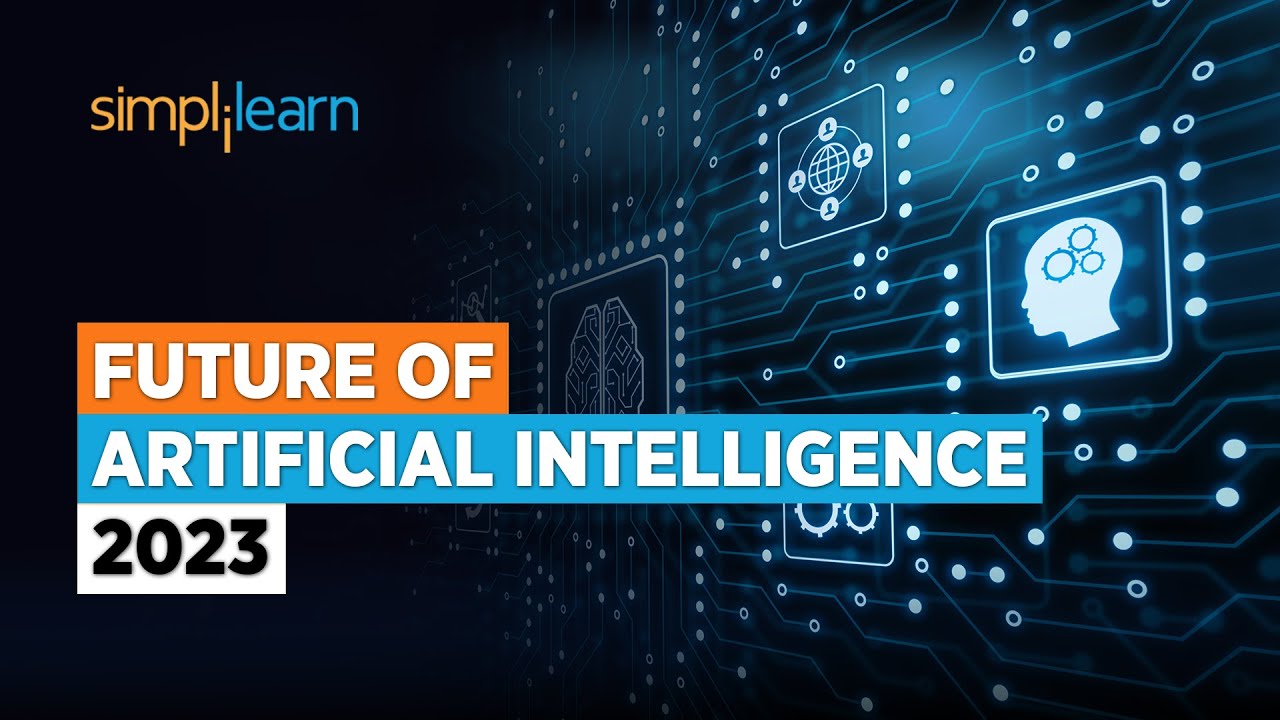
Healthcare
AI has already made significant advancements in the healthcare industry and is expected to play a crucial role in the future. It has the potential to revolutionize disease identification and help healthcare providers and patients make better treatment and lifestyle decisions. AI-powered systems can analyze vast amounts of medical data and provide valuable insights to healthcare professionals. From predicting disease outbreaks to assisting in complex surgeries, AI technology has the potential to improve patient outcomes and transform the healthcare landscape.
Cybersecurity
With the increasing prevalence of cyber threats, AI is becoming an essential tool in protecting organizations from malicious activities. AI algorithms can detect and mitigate cyber threats more efficiently and effectively than traditional security solutions. By analyzing massive amounts of data and identifying patterns, AI can identify potential threats and vulnerabilities, enabling proactive cybersecurity measures. The future of AI in cybersecurity holds the promise of enhanced threat detection and prevention capabilities, ultimately safeguarding sensitive information and systems.
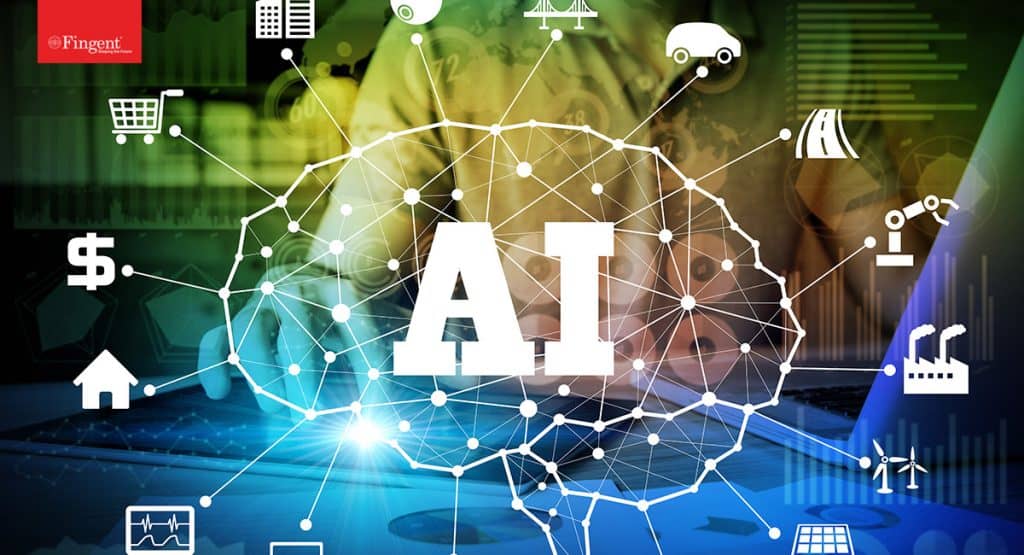
E-commerce
AI is disrupting the e-commerce industry by enhancing customer experiences and optimizing business operations. AI-powered recommendation systems can analyze customer behavior and preferences to provide personalized product recommendations, improving sales and customer satisfaction. Chatbots powered by AI can provide instant customer support, easing the burden on customer service teams. Additionally, AI algorithms can optimize supply chain management, inventory forecasting, and pricing strategies, enabling e-commerce businesses to operate more efficiently and competitively.
Agriculture
AI technology has the potential to transform the agriculture industry by improving productivity, reducing costs, and optimizing resource management. AI-powered systems can analyze data from sensors installed in fields and on agricultural machinery, providing valuable insights on crop health, irrigation needs, and pest management. Machine learning algorithms can also help farmers make informed decisions about planting strategies, optimizing yield, and reducing resource waste. The future of AI in agriculture holds the promise of sustainable farming practices and increased food production to meet the growing global demand.
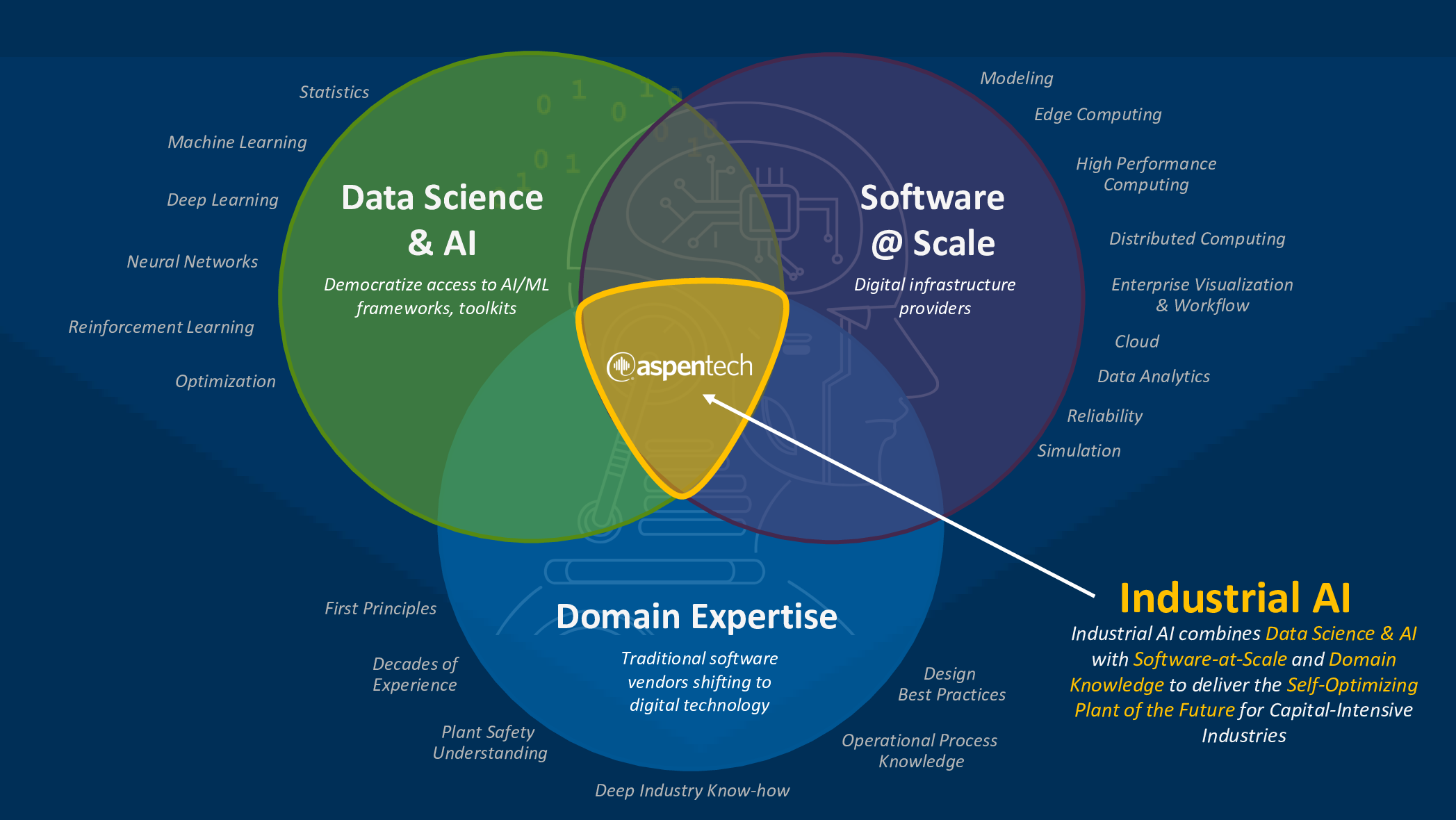
Robotics
AI and robotics go hand in hand, and the future holds exciting advancements in this field. AI-powered robots can perform complex tasks in industries such as manufacturing, logistics, and healthcare. These robots can automate repetitive and dangerous tasks, improving efficiency and reducing human error. In the healthcare sector, robots can assist in surgeries, provide personalized care, and help with rehabilitation. As AI technology continues to advance, robots are expected to become more intelligent and adaptable, revolutionizing industries and improving human lives.
Education
AI has the potential to revolutionize education by personalizing learning experiences and enhancing student outcomes. AI-powered platforms can analyze student data and provide personalized recommendations for learning resources and study plans. Intelligent tutoring systems can adapt to individual student needs, providing tailored instruction and feedback. AI can also automate administrative tasks, freeing up educators’ time for more meaningful interactions with students. The future of AI in education holds the promise of improved access to quality education and enhanced learning outcomes for all.
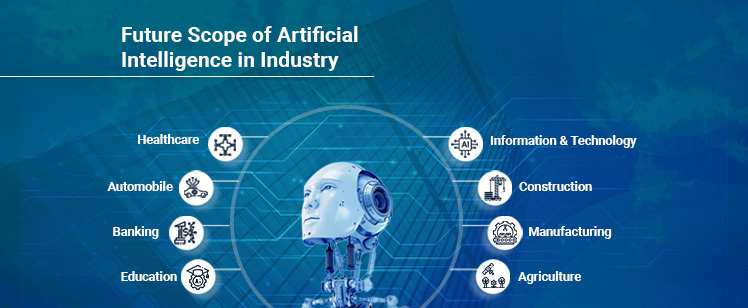
Military System
AI technology is increasingly used in the military sector, contributing to improved strategic decision-making, enhanced surveillance capabilities, and advanced weaponry systems. AI-powered systems can analyze vast amounts of data from various sources, providing valuable intelligence for military operations. Autonomous drones and robots equipped with AI algorithms can perform surveillance, reconnaissance, and even combat tasks. However, ethical concerns and regulations surrounding the use of AI in warfare need to be addressed to ensure its responsible and lawful deployment.
Finance
AI is transforming the finance industry by improving data analysis, risk assessment, fraud detection, and customer service. AI algorithms can analyze massive amounts of financial data and identify patterns and anomalies, enabling more accurate risk assessments and fraud detection. Virtual assistants powered by AI can provide personalized financial advice and automate routine tasks for customers. AI-powered trading algorithms can make data-driven investment decisions, optimizing portfolio management. The future of AI in finance holds the promise of more efficient and secure financial services for individuals and businesses.
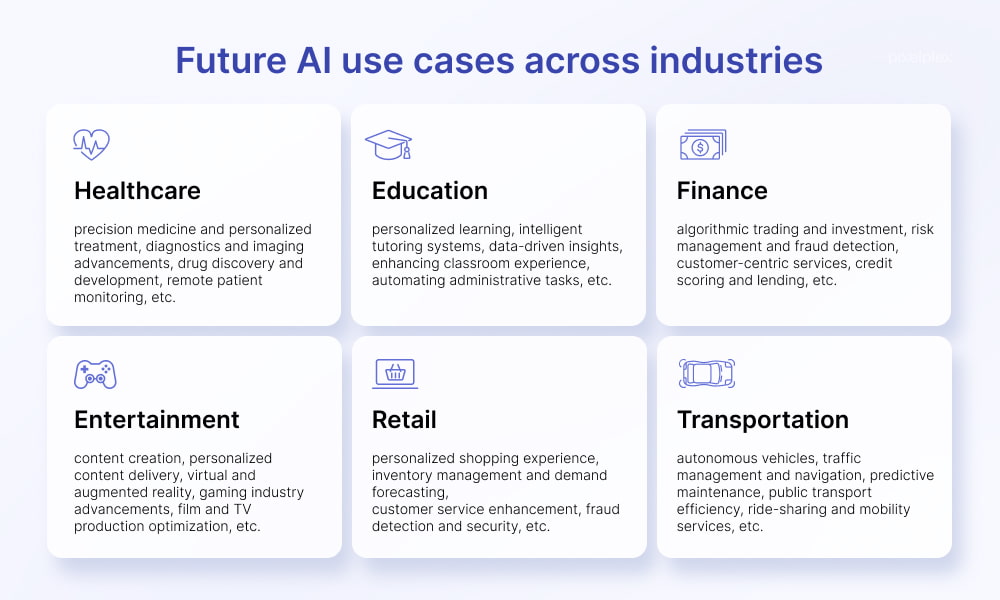
Gaming
AI is reshaping the gaming industry by enhancing game experiences, enabling realistic physics simulations, and creating intelligent virtual characters. AI algorithms can analyze player behavior and adapt the game to provide personalized challenges and experiences. AI-powered physics engines can simulate realistic movements and interactions, improving gameplay immersion. Intelligent virtual characters can learn and evolve, providing more dynamic and engaging gameplay. The future of AI in gaming holds the promise of more immersive and interactive gaming experiences.
Conclusion
The future of AI is expansive and promising, with potential applications in various industries. From revolutionizing healthcare and cybersecurity to transforming agriculture and finance, AI technology continues to evolve and drive innovation. However, along with its potential benefits, responsible deployment and addressing ethical concerns are essential to ensure that AI serves as a tool for human progress. As AI becomes more prevalent in our everyday lives, it has the potential to enhance efficiency, effectiveness, and improve our lives in numerous ways. Let us embrace the future of AI and its transformative potential for a brighter and smarter future.






Leave a Reply